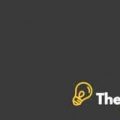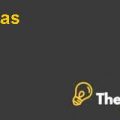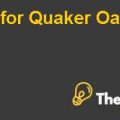
Introduction
The paper attempts to describe the strategic management problem of Henkel along with the company’s background and core values. The paper also attempts to describe the internal and external analysis of Henkel through the implementation of different theories and models which includes SWOT analysis, PEST Analysis, and Porter’s five forces model. Furthermore, the paper provides alternative solutions with their advantages and disadvantages in order to select the best feasible option. Moreover, the paper provides recommendations with step by step action plan to implement the alternative decided. Lastly, the paper also provides the executive summary of the paper.
Strategic Management Problem
Company Background
Henkel is one of the largest manufacturers of chemical brands which were founded in the year 1876. The company provides the leading technological brands in Laundries & homecare, adhesive technologies, and provides different categories of products in beauty care. The most popular brands of the company include Persil, Loctite, and Schwarzkopf. In the laundry and home care sector, Henkel offers heavy duty detergents and as well as special detergents. In the year 2012, the company reported sales of €4556 million which comprises of 28% of the entire sales reported for the company.
The beauty care products have been provided by the company in the field of hair, toiletries, oral hygiene, and skin care. Henkel is considered as the leading supplier for salon products. The company managed to generate a sales of €3542 million in the year 2012. This sector constitutes 21% of the entire sales of the company for the particular year. The business sector of Adhesive technologies is an important sector for the company as it constitutes towards the 50% of the entire sales for the year 2012. Henkel is the market leader in producing adhesives, sealants, and other industrial application. The sales of the company for the year were €8256 million.
Problem Statement
While considering the problems in the beauty care industry, the company has invested heavily in its Dial product as the EBIT for the particular product has decreased by 0.2% from the year 2011 to 2012. Therefore, the results have not met the expectations of the company and it has resulted in the growing weakness for the beauty care products for the company. The bargaining power of the company is lower with its retailers in the developing countries which weakens the position and allows more discounts and trade offers for its promotion of its brands. Furthermore, the Henkel’s frame of orientation allows improved performance from employees, however it also enables to kill their morale. The particular strategy focuses on increasing internal competition which may result in increased unethical behaviors and internal damage to the company.
Analysis
SWOT Analysis
Strengths
Henkel has a good reputation and a strong brand awareness in the country. The company also has a large capital and investment involved in KSA which shows that the company is financially sound. Henkel has wide range of products which provides the company to cater a wide range of market that low spending power and also targets to those that have high spending power. The company is well recognized amongst customers due to their quality of products. Henkel also have an expertise in offering its products which differentiates itself from many competitors (Thain & Bradley, 2014)
Weaknesses
Due to the low availability of suppliers in the Middle East, company has limited access towards cheap resources which allows the company to sell products at high prices. As the company also develops chemical products, the company faces many critics from different pressure groups in the development of its products. The company also has a nag to respond slowly to the problems of their customers. As Henkel have developed its business model based on the mechanistic model, therefore the company faces problems regarding maintaining the span of control and also being weak in solving the problems of its customers (Thain & Bradley, 2014).
Opportunities
Due to the increased economic growth of the country, KSA have focused on reducing the barriers of entry for companies. Therefore, this provides a huge opportunity for Henkel and other new entrants to introduce their products in the KSA market. This strategy has also allowed companies to expand their different product range to meet the demands of their customers. Apart from the big competitors of Henkel which includes Unilever.........................
This is just a sample partial case solution. Please place the order on the website to order your own originally done case solution.
This case shows, CEO-led organizational change due to site objectives, performance assessment and accountability. When Kasper Rorsted became the CEO of Henkel, a German company is a manufacturer of personal care products, laundry products and adhesives, in 2008, he was determined to make the corporate culture of "good enough" in a singularly focused on winning in the competitive market. Historically, Henkel was a comfortable, stable place to work. Many employees have not received negative feedback performance. In an effort to refute the widespread attitude of complacency, Rorsted implemented multistage change initiative aimed at creating a "winning culture." First, in November 2008, he announced a set of ambitious financial goals for 2012. As the financial crisis roiled the global economy, he reiterated his commitment to these goals, sending a clear signal to Henkel employees and external stakeholders that excuse is no longer acceptable. Rorsted next introduced a new set of five values of the company, replacing the previous list of 10 values, which several people were able to read from memory, the first of which emphasizes a focus on customers. It also established a new, simplified system of performance management, which assessed the performance management and improvement potential in four levels. system also includes forced ranking requirement, mandatory that a certain percentage of workers (in each business unit and corporate) ranked among the top high, medium or low performers. These estimates significantly impacted bonus compensation managers. At the end of 2011-the time in which the event takes place, Henkel is well on its way to the goal in 2012. After shedding nearly half of the top management team, along with multiple sites of products and brands, Henkel, appears to be more compact, more competitive, "winner" of the organization. "Hide
by Robert L. Simons, Natalie Kindred Source: Harvard Business School 19 pages. Publication Date: February 7 2012. Prod. #: 112060-PDF-ENG













